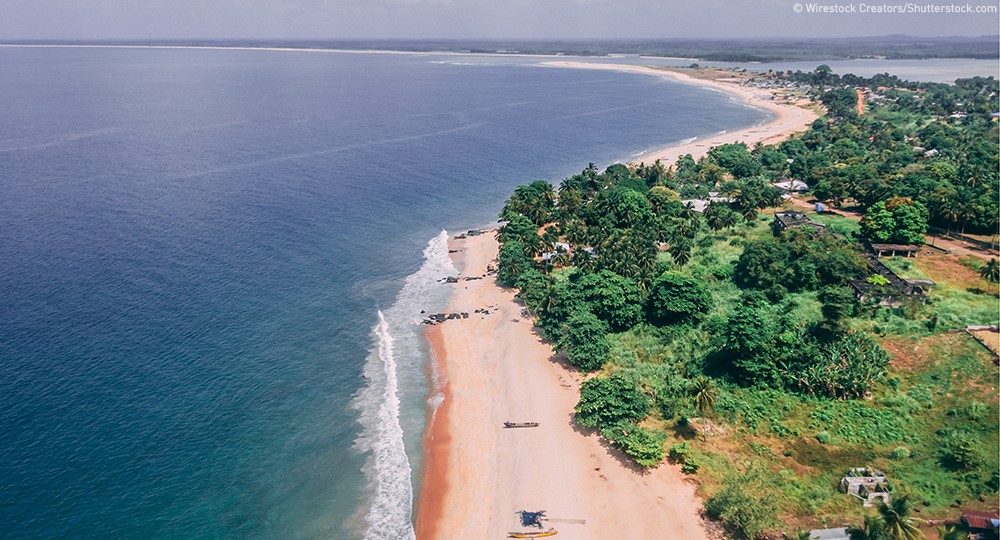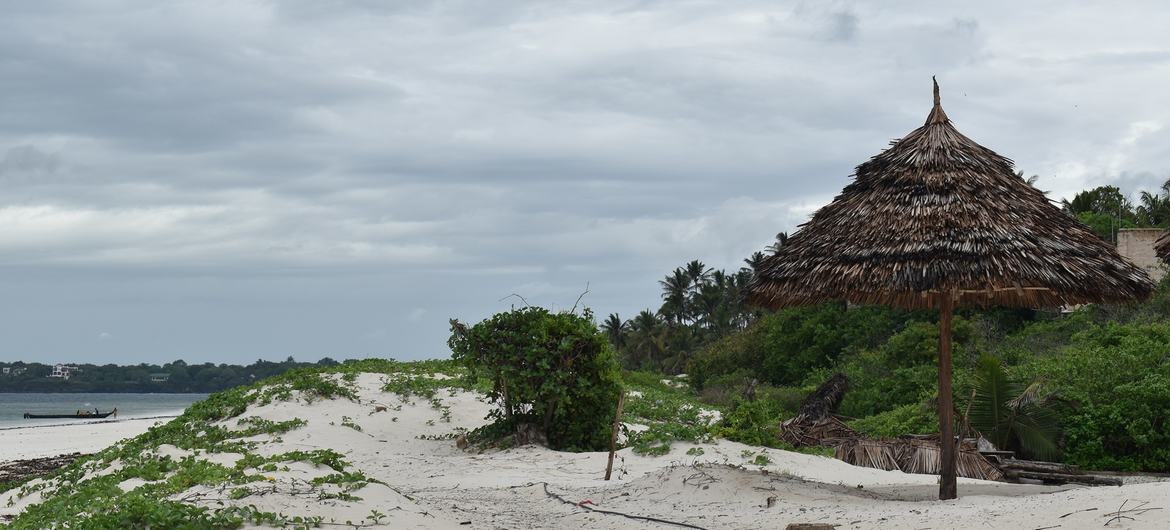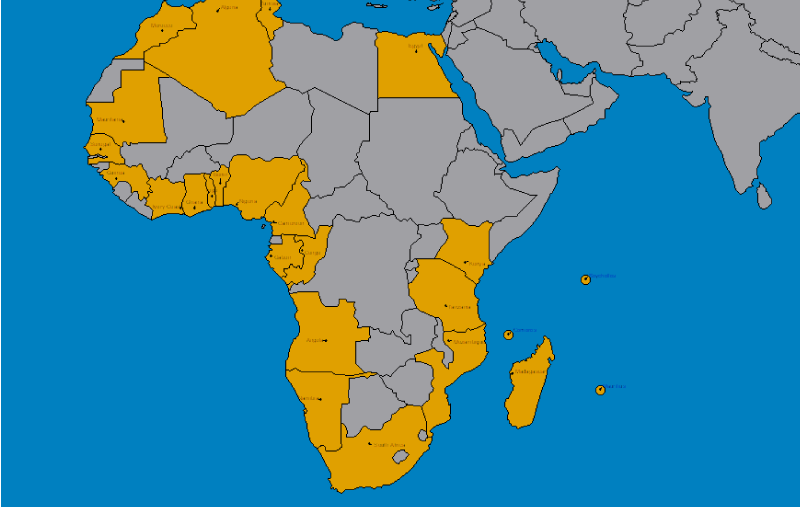The UN Ocean Conference (UNOC) co-organized by Portugal and Kenya from 27 June to 01 July 2022 in Lisbon, Portugal was a landmark ocean event for regrouping decision makers, innovators, private sector actors and stakeholders towards the implementation of the SDG Goal 14 and Aspiration 1.6 of Africa’s Agenda 2063, both related to the management of the Oceans, Seas and Marine Resources for Sustainable Development.
According to reports, the week-long conference brought together some 6,500 participants and was opened by the Secretary-General of the United Nations António Guterres. The Secretary-General of the United Nations (UNSG or SG) is the Chief Administrative Officer of the United Nations and Head of the United Nations Secretariat. There were, among others, high-powered African representatives.
In his speech, António Guterres has warned that unless nations overcome short-term territorial and resource interests the state of the oceans will continue to deteriorate. Secretary-General described “the artificial dichotomy” between jobs and healthy oceans as one of the main challenges and asked for strong political leadership, new partnerships and concrete steps.
On behalf of Moussa Faki Mahamat, Chairperson of the African Union (AU) Commission, Amb. Josefa Leonel Correia Sacko, Commissioner for Agriculture, Rural Development, Blue Economy and Sustainable Environment (ARBE) at the African Union (AU) Commission headed the AU delegation to the United Nations Ocean Conference 2022 (UNOC).
He was accompanied by Amb Fatima Kyari Mohammed, Permanent Observer of the African Union to the United Nations in New York (USA); Harsen Nyambe Nyambe, Director of Sustainable Environment and Blue Economy; and Dr Bernice Mclean, Head of Blue Economy at AUDA-NEPAD in South-Africa, Representative from REC, and other staff of the AFrican Union Commission.
President of Kenya, H.E. Uhuru Kenyatta, and the President of Portugal, Marcelo Rebelo de Sousa, were elected by acclamation as the Presidents of the Conference with Statements delivered by each President accordingly. On the margins of the UNOC, the meeting of the Committee of African Heads of State and Government on Climate Change (CAHOSCC) was also held, during which the African Union Commission delivered a strong signal on Africa’s readiness to protect and sustainably develop its ccean resources.
The AUC delegation to the conference showcased steps for promoting Africa’s blue economy and to send a strong signal on Africa’s readiness to protect and sustainably develop its ocean resources as well as its contribution to the global conversation on oceans by focusing on unlocking Africa’s potential for innovative, knowledge-based and high-revenue sectors while fostering sustainability and private sector activity, which further places emphasis on the integration of women, youth and Africa’s scientific community within the blue economy.
In addition, the AUC co-organized various side-events including two major Africa focused events: the first event co-organized with IOC-UNESCO on ‘Accelerating innovation, science and technology, and promoting the involvement of women and youth in Africa’s oceans and seas in the context of the ocean decade’ was held on 29th June. It touched on the need to address cultural norms and stereotypes on the one hand, and address resource gap on the other, and to strengthen women and youth’s participation in the blue economy.
The second event focus on “Shaping a sustainable Blue Economy in Africa” co-organized with AUDA-NEPAD, was held on 30th June, and emphasized Africa’s vast amount of marine resources which are highly significant to global ecosystem services and need to be managed adequately for the benefits of the citizens.
The AUC also co-sponsored the following side events during three consecutive days:
(i) ‘Blue innovation for multifunctional marine spatial planning’, together with the Stockholm Environment Institute and the Government of Sweden and Kenya on 28th June. It emphasized the importance of ensuring that Africa has access to and ownership of ocean data and ensure the need for Africa to develop its own Marine Spatial Planning that will aid to address data gaps;
(ii) ‘Fostering international and regional cooperation in support of the sustainable development of the blue economy in LDCs, LLDCs and SIDS’, together with the International Seabed Authority, on 29th June;
(iii) ‘Advancing women empowerment and leadership in marine scientific research to support inclusive sustainable ocean governance’, together with the International Seabed Authority on 30th June.
In addition, the AUC delivered a statement during the plenary, emphasizing the crucial role that the African continent must play in the global oceans agenda, considering the vast marine resources that it exerts sovereignty over.
With women and youth on board, the AUC indicates its readiness to protect and develop ocean resources. “Women and Youth represent Africa’s most underutilized assets, so the African Union Commission is committed to identifying ways to promote their integration fully in the conversation on blue wealth,” AU Commissioner Josepha Sacko told the gathering.
Sacko informed that the AUC is in the process of implementing the blue economy, in various sectors, highlighting that “…we need to enhance traditional ocean-based sectors like fisheries and tourism so that they contribute to the livelihoods of coastal communities that rely on them. But, at the same time, Africa needs to move to a knowledge-based model of developing ocean science and ocean-based technologies. We have the ideas, vision, and ambition to do so.”
Further at the plenary session, the Group of African States, emphasized that Africa is determined to sustainably harness the vast potential of its maritime domain and accelerate economic transformation and opportunities provided by the oceans. To realize sustainable ocean-based development, the African Group stresses the need to promote collective efforts to address inherent financial and infrastructure gaps preventing the realization of the full potential of African marine resources.
The African Group further emphasized that oceans are a common heritage to mankind, including the African landlocked States. Achieving Sustainable Development Goal 14 (life below water) and conservation of ocean and marine ecosystems will require bold and ambitious partnership, mobilization of significant financial resources, access to technologies and innovations, capacity-building and effective governance arrangements.
Furthermore, the delegation along with the key partners including the RECs, NGOs, WIMAfrica, Fisheries and Aquaculture Associations participated in various other side events and engaged with innovators, policy makers and stakeholders on a range of issues including conservation, sustainable ocean economies and capacity building, as well as institutional and policy making and implementation, NGO’s and research and civil society organizations, legal instruments.
On 1st July, the side event organized by the Republic of Mauritius ‘Science Consideration for Protection of Marine Ecosystems in Chagos Archipelago’ which aimed at advocating on the complete decolonization of the Chagos archipelago. It was an opportunity seized by Office of the Legal Counsel the African Union to reiterate its unconditional support to the Government of Mauritius until the completion of decolonization of Chagos is achieved and enjoyed by the Citizens of Mauritius in accordance with well-established principles of international law and the pertinent decisions and Resolutions of Organization of African Unity (OAU)/African Union (AU) and United Nations.
The United Nations attempts at addressing ways by which the private sector provides practical solutions to address the problems such as by improving energy efficiency, waste management and introducing market-based tools to shift investment, subsidy and production; made it necessary to mobilize actions for the conservation and sustainable use of the oceans, seas and marine resources by establishing the United Nations Ocean Conference.
SOURCE: https://moderndiplomacy.eu/2022/07/11/africas-readiness-to-protect-and-sustainably-develop-its-ocean-resources/



